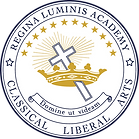THE AIM OF LIBERAL EDUCATION

“In every subject…the aim of liberal arts education is to give the student the principles of the subject studied in such a way that he will be able to make right judgments about that area of reality. That is why this kind of education is called ‘liberal’ education. Liberal means ‘free’; a liberally educated man is a free man because he is able to direct his own life and is not dependent upon the judgments or understanding of others.”
--Laura M. Berquist, Designing Your Own Classical Curriculum
The term “liberal arts” is frequently used to describe the curricula of schools and colleges, but it is a term that often lends itself to misunderstanding. Liberal arts education, or simply liberal education, does not refer to the liberal-conservative political divide. In the case of liberal arts education, the word liberal is used in its original Latin meaning of free. The liberal arts curriculum is designed to produce a student who is truly freed from the erroneous opinions of others and the political agendas of the day in order to seek and embrace the truth.
Classical Education attempts to recover and to make available for today’s students the wisdom of traditional educational models reaching back to the Trivium of the Middle Ages. The medieval Trivium—Grammar, Logic, and Rhetoric—describes the course by which a child acquires mastery of a subject. In the Grammar stage (elementary school), a child focuses on learning “facts”—vocabulary, spelling, multiplication tables, historical dates, etc.—and exercising the memory by learning poetry by heart. In the Logic stage (the middle school years), a child explores the relations between facts—for example, the causes of historical events—and masters the rules of logical reasoning. In the Rhetoric stage (the high school years), the focus is on excellence in both written and spoken expression. The goal of classical schooling is a graduate who knows a great deal, who understands what he knows, and who can communicate persuasively with others.
The pursuit of excellence in education has long had the goal of producing men and women intellectually and emotionally able to enter into, and affect, the world around them.The classical term to refer to the skills necessary to produce such well-formed individuals is “liberal arts” – arts that, when mastered, make one free.
